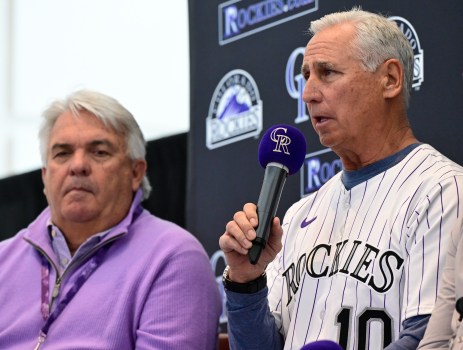SPORTS INFO DASH
Sports Info Dash is your all-in-one hub for real-time sports updates, live scores, in-depth match stats, player profiles, and breaking news across football, basketball, tennis, and more. Stay ahead with the latest in global sports action.
Bud Black’s Rocky Road: Examining the Colorado Rockies’ Managerial Shakeup
Sports Info Dash

The Colorado Rockies made headlines with the recent firing of Bud Black, a move that sent shockwaves through Major League Baseball. As one of the franchise's most experienced and respected managers, Bud Black’s journey with the Rockies was filled with high hopes, tough losses, and unwavering commitment. Let's take a closer look at the factors behind this major decision and what it means for the team moving forward.
Bud Black’s Legacy with the Rockies
Bud Black took over as the Rockies’ manager in 2017, bringing a reputation for player development and tactical skill from his years in the league. Under his leadership, Colorado experienced a pair of playoff appearances in 2017 and 2018. These successes marked some of the best seasons in recent franchise history. However, the momentum did not last. The Rockies endured several challenging seasons, culminating in back-to-back 100-loss years and a tough start to the 2025 campaign.
Despite these setbacks, Black became the winningest manager in franchise history, guiding young talent and building strong clubhouse culture. His experience and leadership were clear. Yet, baseball is a results-driven business, and recent performances left fans and management searching for answers. For more details on Black’s tenure and the official announcement, see the ESPN report on Bud Black’s firing.
A Tumultuous Start and the Decision to Part Ways
The 2025 season began on a disappointing note, as the Rockies found themselves with a major-league-worst record. Even after a rare win, ownership decided it was time for a shakeup. Black's departure came after a particularly tough 21-0 loss to the Padres, which underscored the urgent need for change.
Rockies owner Dick Monfort described the team’s play as “unacceptable,” making it clear that the organization owed its fans more. The managerial change wasn’t the only one—bench coach Mike Redmond was also let go, and third-base coach Warren Schaeffer was named interim manager. This move signals a new direction, one that asks players and staff alike to step up and turn things around. For an in-depth look at the Rockies' reasoning and Black’s achievements, visit MLB.com’s coverage.
Evaluating Responsibility: Was It All on Bud Black?
While managers often take the fall during tough stretches, some observers argue that deeper issues have plagued the Rockies. Many believe roster construction and player signings contributed to the team’s struggles as much as on-field management. A compelling argument for holding upper management accountable can be found in the Denver Post’s analysis, which discusses the role of GM Bill Schmidt and ownership.
Players voiced support for Bud Black, with some expressing regret for not delivering better results on the field. This sense of shared responsibility raises questions about what changes are truly needed for future improvement. Is a new manager enough, or does the franchise require a more comprehensive rebuild from the top down?
The Road Ahead for the Rockies
With Warren Schaeffer taking the reins as interim manager, the Rockies have entered a period of transition. The rest of the season will serve as an audition for both players and staff, as management evaluates possible paths forward. Building morale and fostering development are clear priorities.
Despite the challenges, Rockies fans remain passionate and hopeful. The franchise’s willingness to make bold moves shows a desire to break out of recent ruts. Whether these changes will lead to lasting improvement remains to be seen, but one thing is certain: Bud Black’s influence will be felt in Colorado for years to come.
Conclusion
Bud Black’s era with the Colorado Rockies was defined by early success, steady leadership, and tough endings. His recent dismissal marks a pivotal point for the franchise. As fans and analysts debate the best path forward, the story of Bud Black reminds us how quickly fortunes can change in baseball—and how every decision shapes a team’s legacy.